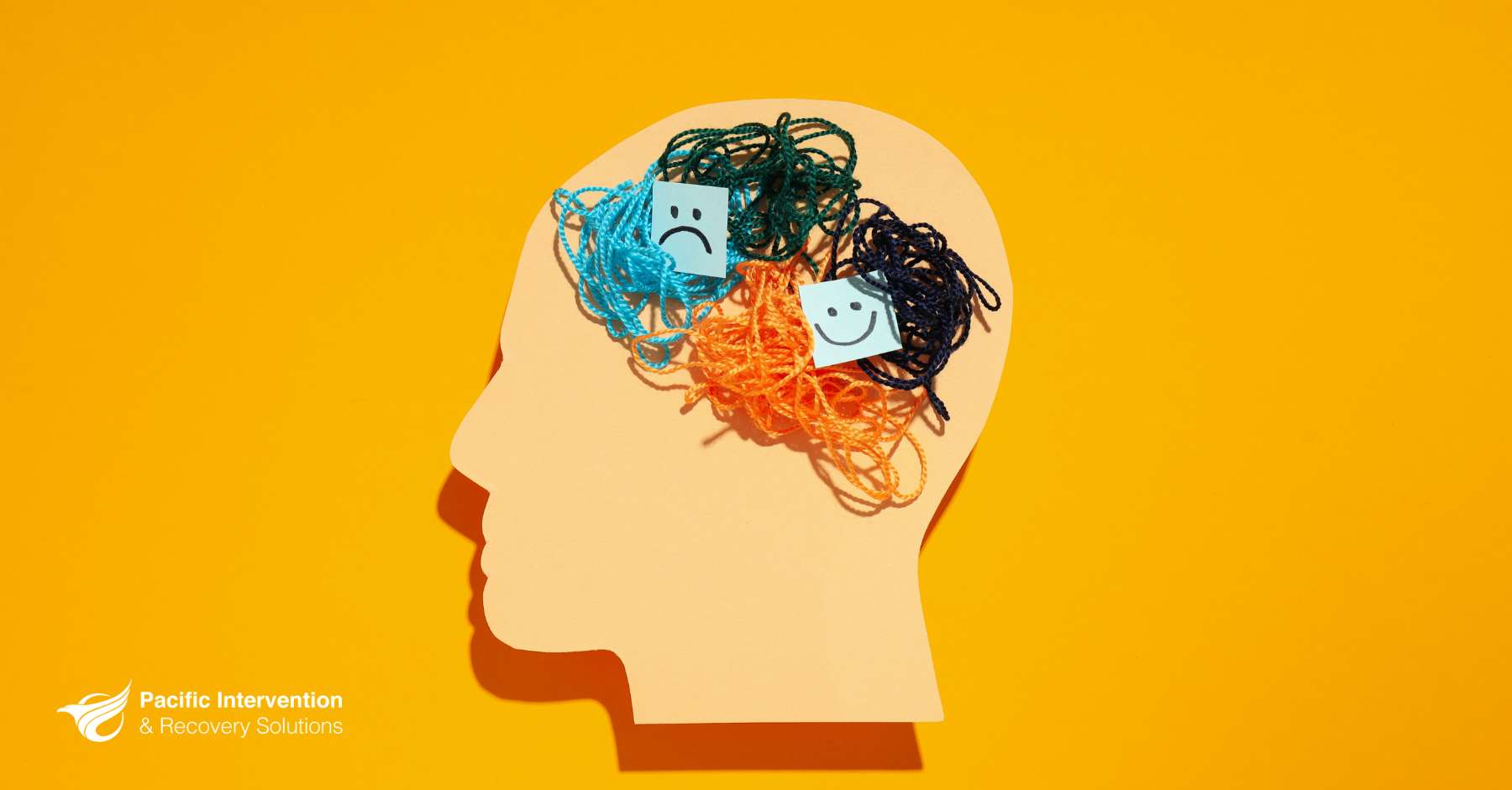Mental health disorders change the way we think, feel, and connect with others. They affect our emotional, psychological, and social well-being. People can get these illnesses at any age, more often than most think. To be exact, millions of people around the world have some mental illness.
It’s important to know what these disorders are to spot their signs, get help, and get rid of the shame that surrounds them.

Understanding Mental Health Disorders
A lot of different genetic, biological, environmental, and psychological factors can come together to cause mental health problems. These problems change how we deal with anxiety, interact with others, and make decisions.
Symptoms can be very different, ranging from constant sadness and worry to trouble focusing and pulling away from social activities. It’s important to remember that mental health problems are not a sign of weakness; they are real medical conditions that need to be understood and treated.
The World Health Organization (WHO) says mental health is essential for general health. Sad to say, many people still suffer in silence because of shame.

Why Is It Important to Take Care of Your Mental Health?
Behavioural health, also sometimes called mental health, is a person’s cognitive, emotional, and social well-being. It changes how you think, feel, act, and talk to others. How you feel also affects how you deal with worry. It’s an essential part of life, from birth to old age.

Types of Mental Health Disorders
There are different types of mental health illnesses, and each one comes with its own set of problems. Most people have one of these types:
Anxiety Disorders
Anxiety illnesses are marked by worrying or fearing too much, which can get in the way of daily life. Some common types are:
- Generalized Anxiety Disorder (GAD): People with GAD worry all the time about many things, like their health, money, and relationships with other people.
- Panic Disorder: People with this disorder often have panic attacks. Panic attacks are sudden, intense episodes of fear that trigger severe physical reactions, even when there is no real danger.
- Social Anxiety Disorder: People with this disorder are terrified of being around other people. For this reason, they avoid social situations and meetings out of fear of being embarrassed.
- Specific Phobias: Strong fears of particular things or situations. It could be things like heights, bugs, or flying that make a person avoid them.
Depression
Mood disorders mainly affect how people feel and can cause significant mood changes. Some examples are:
- Major Depressive Disorder (MDD): Chronic sadness, depression, and a loss of interest in things that used to make you happy are all signs of MDD.
- Bipolar Disorder: People with this disorder have massive changes in their mood, from emotional highs (mania or hypomania) to lows (depression), which make it hard for them to go about their daily lives.
- Dysthymia: Persistent Depressive Disorder, or dysthymia, is a long-term form of depression in which people feel down for extended amounts of time, usually two years or more.
Psychotic Disorders
People with psychotic illnesses have skewed views of reality. The most well-known case is:
- Schizophrenia: People who have schizophrenia may have hallucinations (seeing or hearing things that aren’t there) and delusions (firmly held false beliefs), which can make it very hard for them to function.
Personality Disorders
People with personality disorders behave and think in ways that are very different from what most people would expect. They can make relationships and your sense of self difficult. Some common personality conditions are:
- Borderline Personality Disorder (BPD): People with BPD often have unstable moods, behaviours, and relationships, which can cause a lot of mental turmoil.
- Antisocial Personality Disorder: People with this disease often act in ways that violate other people’s rights and are impulsive. They also usually lie.
- Narcissistic Personality Disorder: people with this disease think they are more critical than others and must be admired. Most of the time, they don’t care about other people.
Obsessive-Compulsive and Related Disorders
People with these disorders think and do the same things over and over again. Here are a few noteworthy examples:
- Obsessive-Compulsive Disorder (OCD): OCD stands for obsessive-compulsive disorder. People with OCD have unwanted thoughts (obsessions) and feel like they have to do certain things to calm down (compulsions).
- Body Dysmorphic Disorder: People with body dysmorphic disorder are obsessed with flaws they believe they have in their appearance. This can cause significant distress and problems in their daily lives.
Disorders Linked to Trauma and Stress
These illnesses happen after a traumatic or stressful event. This is the most famous example:
- Post-Traumatic Stress Disorder (PTSD): People with PTSD may have nightmares, flashbacks, and extreme anxiety after a traumatic event, and they may try to avoid things that remind them of the trauma.
Neurodevelopmental Disorders
These diseases usually appear early in life and can make it hard to do things at work, in school, with friends, or in your personal life. Some examples are:
- Attention-Deficit/Hyperactivity Disorder (ADHD): This disease causes people to be forgetful, irritable, and impulsive. It can happen to both kids and adults.
- Autism Spectrum Disorder (ASD): ASD is a complicated developmental disease that has a lot of different symptoms and levels of severity. It affects behaviour, communication, and social interactions.
In Conclusion
Complicated and varied mental health diseases affect millions of people worldwide, and we know their influence on daily functioning, relationships, and quality of life can be significant. Many diseases require effective management, and for this reason, early diagnosis and intervention are crucial. Treatment options, including therapy, drugs, a changing lifestyle, and supporting systems, would be ideal for every person.
To spread compassion and understanding, more people need to know about mental health problems. Getting rid of the shame that surrounds mental illness encourages people to get the help they need and improves mental health in general. Mental health is just as important as physical health for a happy life.
FAQs
1. What are common signs of mental health disorders?
Common signs can include prolonged sadness, excessive worry, changes in appetite or sleep patterns, withdrawal from social activities, and difficulty concentrating.
2. How are mental health disorders diagnosed?
A mental health worker will usually conduct a complete evaluation, which may include discussing symptoms, medical history, and psychological tests.
3. Can mental health disorders be treated?
Yes, mental health disorders can be well controlled with a mix of therapy, medication, changes to one’s lifestyle, and strong support networks.



